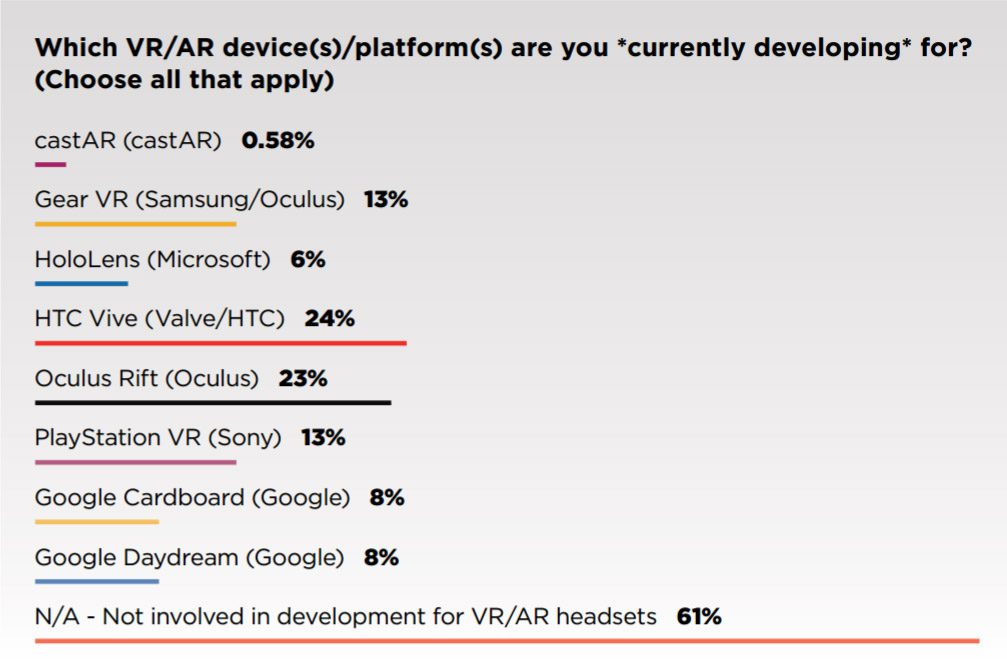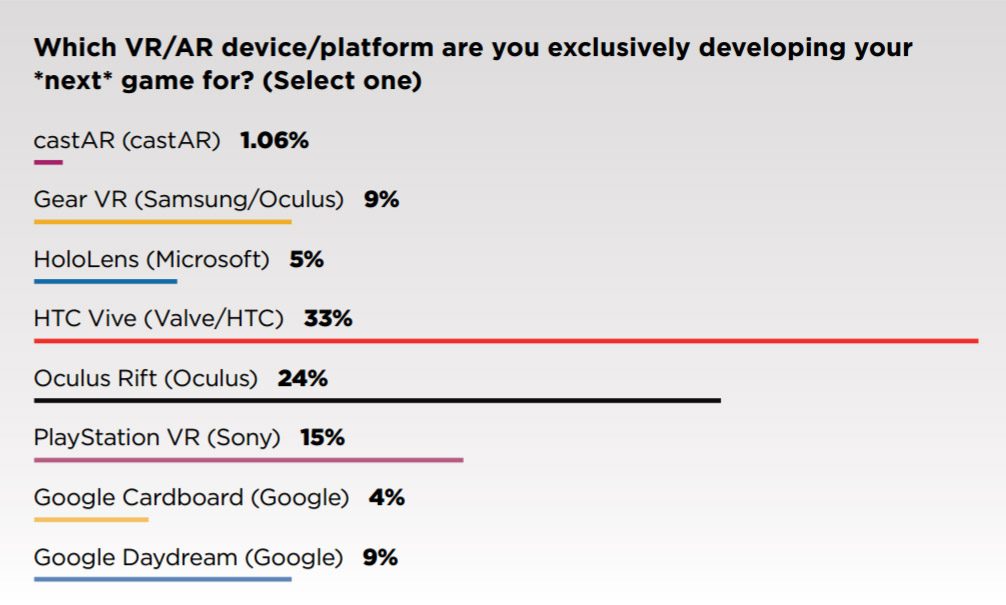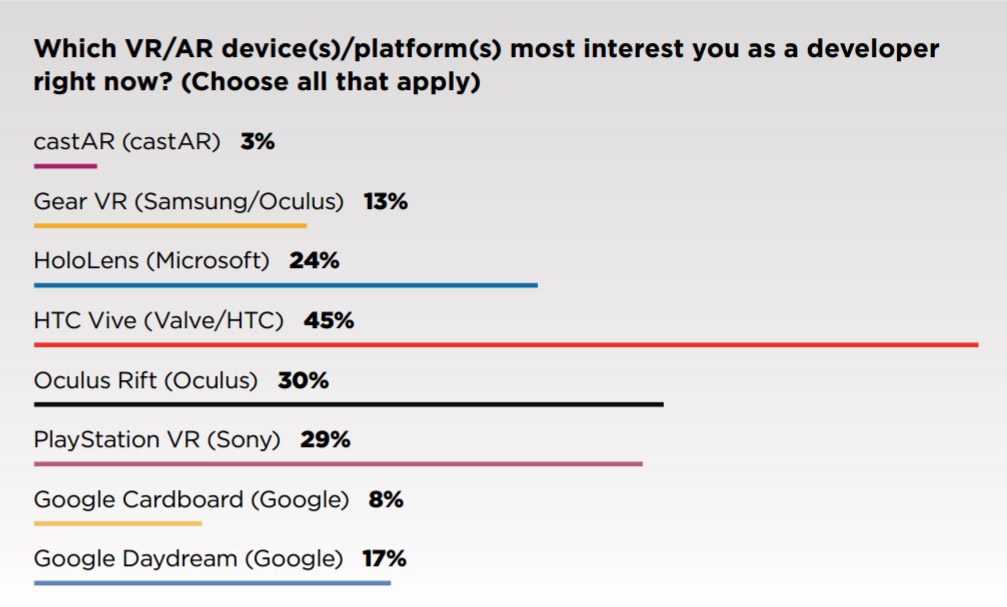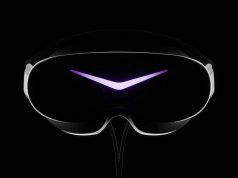A survey of game developers attending the annual GDC conference suggests major growth in the number of developers building games for AR and VR headsets.
The 2017 GDC State of the Game Industry report, which gathered data from 4,500 attendees of the annual GDC conference, has been published. Among the insights from the report is that a healthy 39% of respondents are developing titles for AR and VR headsets.
Present AR/VR Focus
With 2016 being the year that major headsets have finally hit store shelves, there’s been major growth in the number of developers focusing on immersive platforms. According to the report, the HTC Vive (25% of respondents) and the Oculus Rift (24%) are leading the pack by a significant margin in terms of which headsets developers are currently developing for, followed by PlayStation VR (13%), right on par with Samsung’s Gear VR (13%).
Future AR/VR Focus
As for the future, development interest in the HTC Vive seems to be growing the most compared to other platforms. 40% of respondents said they expected their next VR/AR project (after the current project) to target the Vive while 37% said the Rift and 26% said PlayStation VR, according to the report.
Exclusivity
Among 11% of respondents who said they were working on an AR/VR game that would be exclusive to a single platform, the gap between Vive (33%) and Rift (24%) widened, with PlayStation VR coming in at 15%.
 Developer Interest in AR/VR Platforms
Developer Interest in AR/VR Platforms
Actual present or future projects aside, the survey also asked developers what VR/AR headsets interested them most; here the Vive took an even stronger lead, with 45% of developers interested in the Vive, 30% in the Rift, and 29% in PlayStation VR. Interestingly, in terms of interest, Google’s Daydream at 17% of interested respondents, beat out Gear VR at 13%.
 Great Majority of Developers See AR/VR as a Sustaining Long-term Business
Great Majority of Developers See AR/VR as a Sustaining Long-term Business
When it comes to AR/VR as a sustainable business, confidence is high among game developers, with 75% believing that it will be a long-term success as a gaming platform, the figure as last year’s GDC State of the Industry report.
You can download a copy of the full 2017 GDC State of the Game Industry report here, which includes additional AR/VR insights alongside broader games industry.













